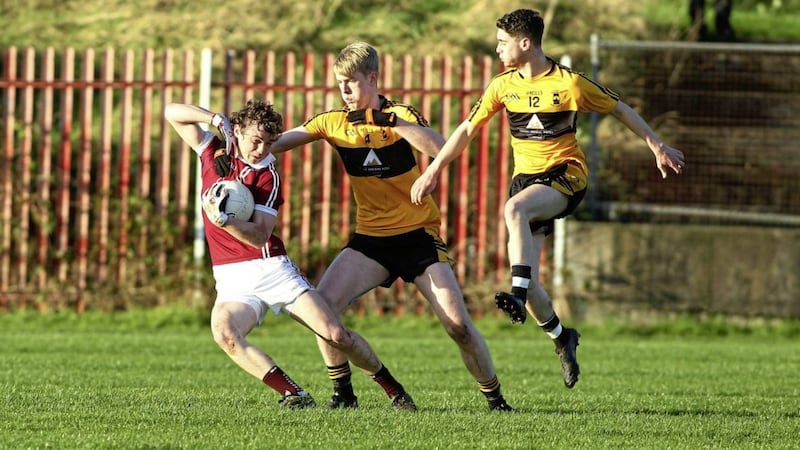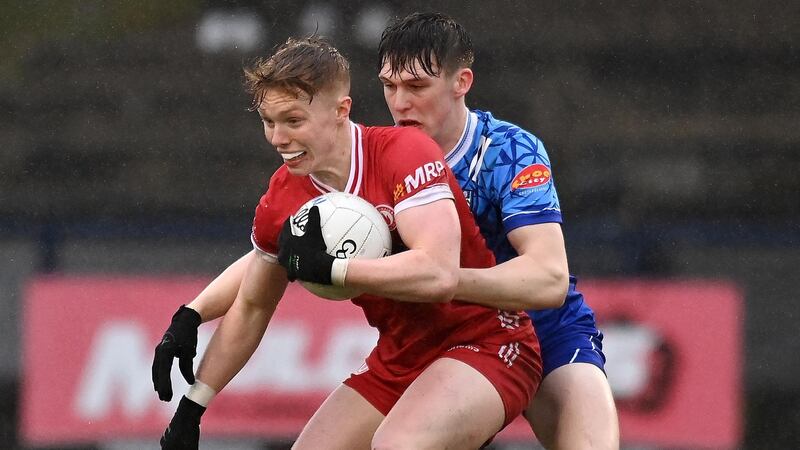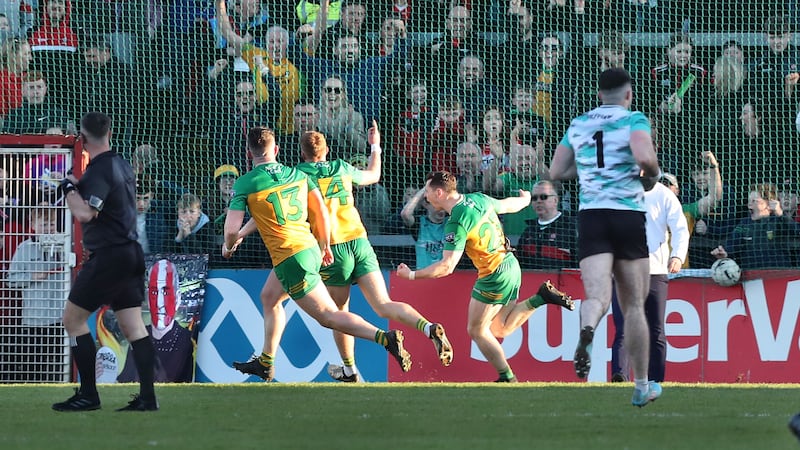ENDA McGinley has called on the GAA’s Annual Congress to allow counties to reverse the “absolutely nuts” decision to change the U18 age limit for minor club games to U17.
McGinley’s native Errigal Ciaran, where he was minor manager when Congress voted in 2016 to change the grade at inter-county level to U17, are one of the clubs behind a motion calling for counties to be given autonomy on setting their underage grades.
The change at inter-county level was followed by a push from Croke Park to move clubs into line which has now become rule.
One of Motion 39’s key selling points for this weekend is that if it was passed, counties that wish to remain at U17 would be able to do so.
The GAA appear set to oppose the motion at Saturday’s meeting in Mayo, with Director of Coaching Games Development Shane Flanagan telling The Irish News there “should be uniformity” across counties in terms of underage grades.
At the time of Congress’ decision in 2016, the GAA had cited a 2013 ESRI report into dropout from Irish sport, and had recently released their own paper through then-Director General Paraic Duffy into the effects of burnout and overtraining.
McGinley believes the GAA had little justification given for the change to U17 on the back of the two reports.
“It was taking research by the GAA in terms of burnout and applying it to a huge bulk of players that the research had absolutely no application to, your club level football, which won’t be affected by burnout. They’re affected by dropout.”
Former Armagh and Crossmaglen star John McEntee also feels that Croke Park’s decision to replace the U20 grade with U19s is part of a “reactionary” process, and that to impose the same at club level would “have no credibility”.
“What’s happening is we’re losing young men every year, hand over fist, because the gap is too big to senior.
“The second biggest problem is the risk, the safety and welfare of these young men from not being involved in sport.
“We know, particularly through Covid, that the mental health and wellbeing of our young people is so poor at the minute. They don’t have any strong social outlets. They’re not meeting friends the way they had been.
“Their work is impacted, many are working from home. They don’t have that level of social contact, and the mental health and wellbeing of our population is really, really bad.
“This only feeds into it. It’s a by-product of it, it’s not the GAA’s intention, but it is a consequence.”
Armagh county board have told The Irish News they will not only back the motion to allow counties to set their own grades, but that they will “speak very strongly on support of it” from the floor and will move minor back to U18 if it’s passed.
The majority of Ulster counties are expected to back it and while Cork have come out and said they will not, there is a sense that momentum has built behind the motion that will give it a chance of reaching 60 per cent.
Killygarry club are also proposing that inter-county minor be put back to U18, which will go head-to-head with a Central Council motion to introduce an U19 championship from next year.
Croke Park officials hosted a video call on Monday night with county chairman, secretaries, coaching officers and Central Council delegates in which they sold the positives of the new U19 competition.
The mood among those on the call suggests the U19 motion will be supported at the expense of Killygarry’s U18 motion.
A delegate on the call asked if a discussion on the motion regarding club age grades could be facilitated, but that was refused.
Shane Flanagan told The Irish News that the GAA had “identified through all of our research” that “we’re losing most of our players between 15 and 17.”
Asked why the current age grades (U13/15/17) were better than U14/16/18, he said: “Because we can provide more games opportunities for 15, 16 and 17-year-olds where we have the greatest drop-off in our games and the games at those levels will not be impacted by adult fixtures.
“If we can solve that problem then it’ll be a great problem to have to deal with beyond that in terms of providing games whether it’s at U18 or U19 or beyond.
“But let’s deal with that issue first – it’s a massive issue for our organisation, we’re losing most of our players between 15 and 17 and we’ve identified that through all of our research, so that’s where we have to provide most of our games,” he said.








